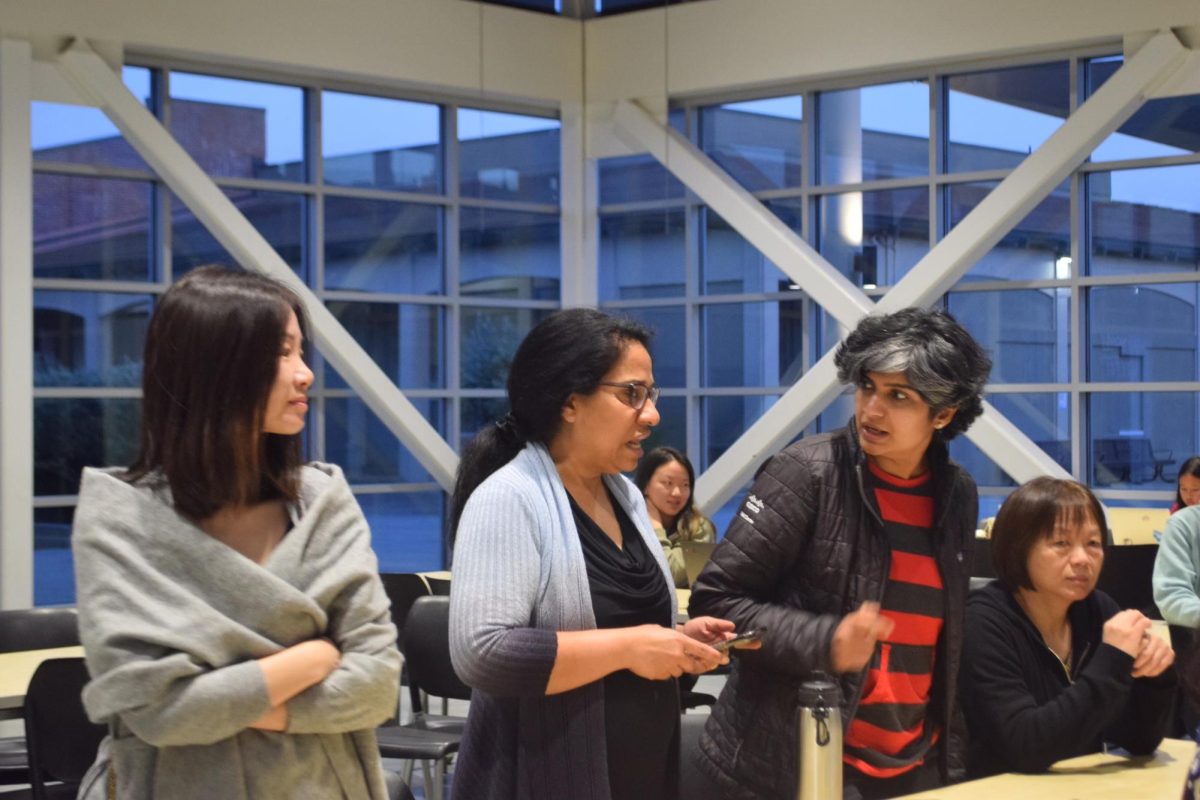Additional reporting and visuals by Isabel Navarrete

Freshman Jenna Tsai stared at screen for several seconds, confused. She clicked “Like,” then un-clicked it. She hovered her mouse over the “Like” button, watching the five new “Reaction” emoticons pop up. Her mouse slid to the “Love” button, then back to “Like.” Then back again. She stared for several more seconds. And several more.
She never thought she’d ever have an existential crisis over a photo of kittens, but she was having one now.
“I feel like I can’t just scroll through anymore, I feel pressured to choose something more specific,” Tsai said. “Which could be really good, but also plain annoying.”

Like many Facebook users, Tsai was intrigued by the company’s Feb. 24 release of five new symbols: “Love,” “Haha,” “Wow,” “Sad,” and “Angry,” presented as emoji-like cartoon faces.
But Tsai wasn’t just conflicted about which button to press, she wasn’t even sure where they were in the first place. Facebook, in an attempt to avoid a “cluttered look,” instructs users to hover over the “Like” button (or click continuously) to access their new symbols. According to a study by research firm UserTesting, 45 percent of users stated that the new Reactions were difficult to find. Yet when users did finally find them, 80 percent rated their usefulness a “4 out of 5,” despite their unintuitive design.

For Tsai, though, the “usefulness” is debatable. On one hand, she’s glad that they’re more specific.
“I get that you don’t want to ‘Like’ a post about a tragedy when you’re trying to boost it,” Tsai said. “So it makes more sense that way…but I don’t think anyone would actually think you were ‘Liking’ a post about something really terrible, so they’re not really necessary.”
Senior Dee Guo agrees that they seem gratuitous — to her, Facebook isn’t really the place to express complex emotions in a single click. And they simply took too long to load. She soon returned to her old habits of scrolling fast and clicking “Like.

After all, according to Tsai, part of Facebook’s appeal is the speed and efficiency with which you could scan articles, scrolls through feeds and react to a variety of posts. Choosing a Reaction slows her down, but at the same time, she appreciates Facebook’s attempts to be more engaging.
“I do [appreciate] that you have to think a little more about your response to what you’re seeing or reading,” Tsai said. “It was a huge flaw before that you basically had to ‘Like’ a post about, for example, a natural disaster when it’s not that you ‘Like’ it.”

For Tsai, there’s a special thrill in someone “Loving” or “Wowing” her picture rather than just “Liking” it; knowing that someone spent just a couple seconds more to “react” to her photo is a small pleasure.

Regardless of what users think, Facebook’s new Reactions have revitalized Facebook, according to Dara Pajdak, a student at De Anza College who studies media and its impacts. But at the same time, the new Reactions are in some ways a loss to Facebook.
“The Facebook ‘Like’ is a very iconic symbol, something that other social medias have copied or emulated,” Pajdak said. “Now it’s no longer Facebook’s defining thing. I wonder if other social medias will follow suit.”
Though platforms like Instagram aren’t changing their like system (so far), Pajdak predicts that emoticon and emoji-like characters will continue to be a major influence in our communication.
“Emojis have been integrated into language,” Pajdak said. “Our textual communication becomes more and more picture-based, and this is part of it.”
But will leaving an “Angry” face become the new alternative for writing an angry comment? Pajdak isn’t sure. The only thing she’s certain about: five new symbols might not transform the way we interact with media and communicate with each other, especially not overnight, but those extra seconds of consideration may eventually add up to something more.















